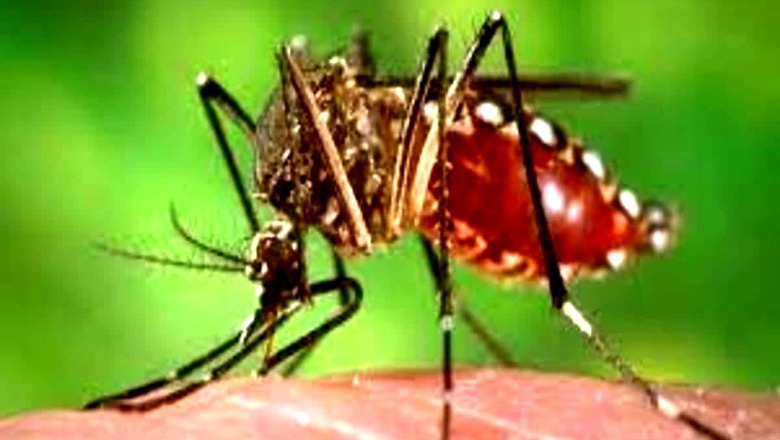
views
Washington: Global warming could limit the spread of dengue fever but may also reduce the effectiveness of a bacteria used to control viral infections in mosquitoes, a study suggests. The research, published on Thursday in the journal PLOS Neglected Tropical Diseases, found that infection with dengue virus makes mosquitoes more sensitive to warmer temperatures.
The researchers also found that infection with the bacterium Wolbachia, which has recently been used as a biological control agent against dengue, also increases the thermal sensitivity of the insects. Dengue fever, a potentially lethal disease for which no treatment exists, is caused by a virus, spread by the bite of the mosquito Aedes aegypti.
"This mosquito is also responsible for transmitting a number of disease-causing viruses, including Zika, chikungunya and yellow fever," said Elizabeth McGraw, professor at Pennsylvania State University in the US. "Aided by increasing urbanisation and climate change, this mosquito's range is expected to overlap with 50 per cent of the world's population by 2050, dramatically increasing the number of people who could potentially be exposed to these viruses," McGraw said.
In recent years, research groups around the world have attempted to control these viruses by infecting Aedes aegypti with the bacterium Wolbachia pipientis and then releasing the mosquitoes into the environment, McGraw explained. Wolbachia have been shown to prevent viruses, including dengue, from replicating inside mosquitoes.
"Importantly, Wolbachia are passed down to the mosquitoes' offspring, making them a self-propagating and lower-maintenance approach to disease control in the field," McGraw said. She noted that both dengue virus and Wolbachia infect a variety of tissues throughout a mosquito's body, and although they are not toxic, they do evoke an immune stress response.
"Since mosquitoes that are infected with dengue virus and/or Wolbachia are already suffering a stress response, we thought that they would be less well equipped to deal with an additional stressor, such as heat," McGraw said. The researchers placed infected mosquitoes in sealed vials and then submerged the vials into a water bath heated to 42 degrees Celsius — a realistic temperature extreme that a mosquito might encounter in the wild.
They then measured how long it took for the mosquitoes to become immobilised and compared the time to uninfected control mosquitoes. The team found that mosquitoes infected with dengue virus showed greater sensitivity to heat.
They became immobilised almost three times faster than uninfected mosquitoes when placed in the hot water bath. Similarly, mosquitoes infected with Wolbachia became immobilised four times faster than uninfected mosquitoes. The researchers said the two agents — dengue virus and Wolbachia bacteria — did not have an additive effect on mosquito thermal tolerance.
"You might expect that mosquitoes infected with both dengue virus and Wolbachia might become immobilised even faster than mosquitoes infected with only one or the other microbe, but we did not find an additive effect," said Fhallon Ware-Gilmore, graduate student at Penn State, who led the project. The researchers noted that future climate models point to increasing frequencies of extreme temperature events, making short exposures to high temperatures a threat to the survival of dengue and Wolbachia infected mosquitoes.
"At lower temperatures, we know that dengue virus may fail to replicate fast enough to make it through the mosquito body and be transmitted, thereby reducing transmission risk," Ware-Gilmore said. "At higher temperatures, while the virus may replicate faster, our work suggests that a corresponding reduction in mosquito thermal tolerance may act as a counter-force on mosquito survival that could help to reduce transmission and potentially human disease incidence in hotter, more climate-variable regions," she added.
.
Read all the Latest News, Breaking News and Coronavirus News here.













Comments
0 comment